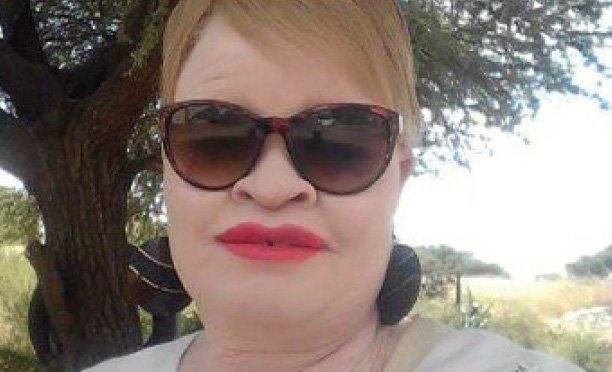AGAINST ALL ODDS
Like a desert flower, Kelly Ndebele’s life has blossomed into something she could not have imagined even in her wildest dreams. The happy and confident young woman overcame discrimination, rejection, despair and loneliness that came with being born with albinism and testifies to the power of attitude in transforming her life.
Although being the second born of five siblings, she grew up as the centre of attention and care because of her condition. In spite of being showered with love in the family, outside of the house, Ndebele quickly learnt that she was different. Born with albinism and growing up in Tonota, it did not take long for her to realise that she was also the target of both prejudice and wonder.
“I remember how some children would avoid me when I played outside. At school, there were times when I was not chosen for the team because some of the children did not want to be close to me,” she recalls. “The snide remarks, open stares, I saw it all and it was disheartening. When I joined junior school later, things did not change much. People still stared at me. Some fearfully. Others in shock. I always felt like I was the clown in a circus or a specimen under observation.”
The word albinism comes from the Latin word albus, meaning white. Albinism is caused by a defect in one or several genes that produce and distribute melanin. The lack of melanin is characterised by an absence of pigment in the skin, hair, and eyes resulting in a light complexion. One in 15,000 people in sub-Saharan Africa have the condition. As a result of the lack of melanin pigment in the hair, skin and eyes, people with the condition are vulnerable to sun exposure.
But in some parts of Africa, people with albinism face kidnapping, violence and murder based on the belief that their body parts can bring people magical powers, luck and wealth. Although most notable features of a person with albinism are in their appearance, the skin’s inability to protect itself from sunlight is only one of the symptoms of albinism. “One of the biggest issues people born with albinism face is problems with eyesight,” Ndebele who only went up to form three in her studies explains. Difficulties in seeing and the lack of tools to assist eyesight contribute to the high number of learning problems common to people with albinism.
In spite of the difficulties in learning, Ndebele is quick to point out that the issue lies in the lack of equipment, not capabilities. “Albinism is not related to the intellectual abilities of a person,” she said in an interview recently. Turnng to the overall situation of albinism in Botswana she emphasises that the current state of awareness and action is good and progressing, except that it tends to be limited to towns and cities.
In comparison to countries where the persecution of people with albinism is prevalent, Botswana is one of the exceptions. On the other hand, acts of violence against albinos may not be experienced, but neglect still remains critical. According to Ndebele, ignorance is most commonly manifested in the neglect of the special needs of a child with albinism. This neglect in turn results in the inability of the child to develop to his or her full potential. It is for this reason that the mother of two, currently working as a security guard, has undertaken a mission to form an association for albinos in the rural areas especially in the Northern side of the country.
“We want to create awareness as well as eradicate the stigma associated with albinism,” she says. With regards to the creation of awareness, Ndebele also hopes to see a change of perspective in the ways of discussing and representing albinism. “People with albinism are not sufferers. They are not victims, but equals.” The organisation will also focus on creating a close knit community of people with albinism.
“It’s important for us to have this space to understand each other and to share our hopes and ambitions,” she said, adding, “We are here to uplift one another.” Besides having a supportive family, Ndebele believes everything depends on confidence. “It is about loving yourself and your skin the way you are,” she says.






